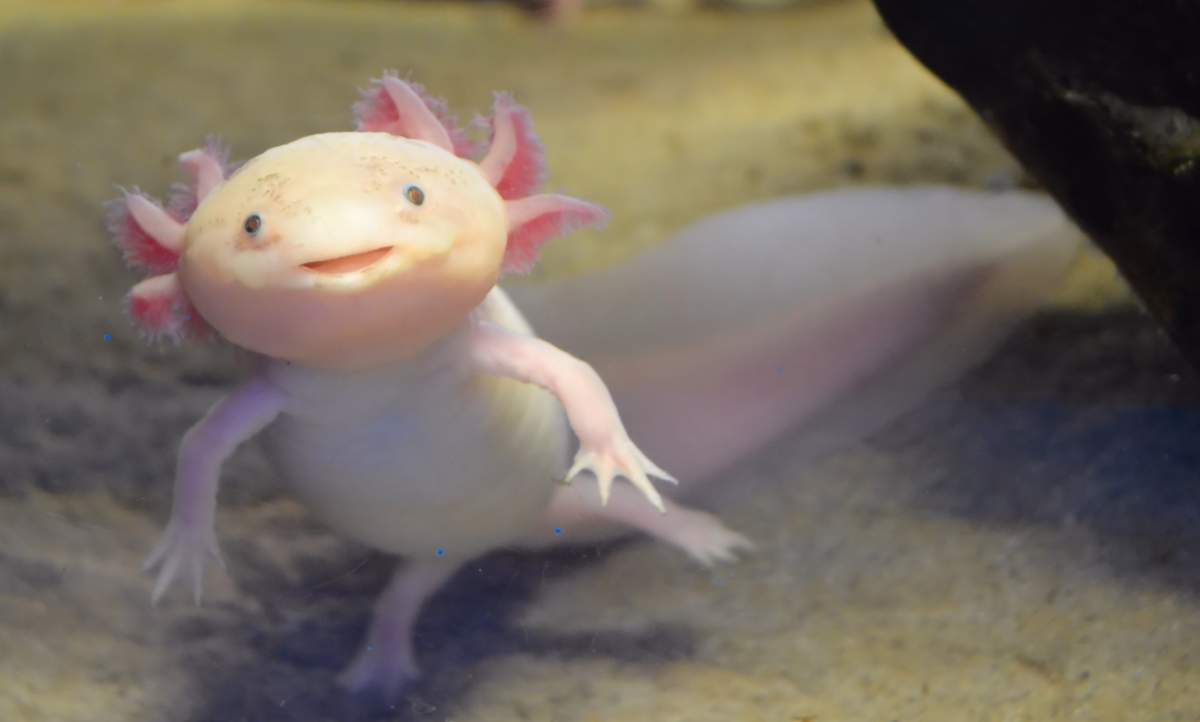You’d be forgiven for thinking it’s a particularly scary-looking shark.

The Canadian Fossil Discovery Centre is set to unveil its latest roadside attraction in the city of Morden’s Milne Park on Friday.
Called a Xiphactinus (pronounced Zy-fak-tin-us), the giant fish was 4.5 metres long (so, about the size of a small T-Rex) and had teeth that would terrify the owners of an all-you-can-eat buffet.
The “X-phish” swam along with the likes of plesiosaurs and mosasaurs like Manitoba’s famous Bruce, in the Western Interior Seaway 80-million years ago. That region is now southern Manitoba.
The new statue will be officially unveiled at 11 a.m. Friday.
“This new monument is a testament to the incredible and rich heritage represented in Manitoba and here in Morden further cementing us as a globally unique destination,” said Peter Cantelon, executive director of the Canadian Fossil Discovery Centre.

Get breaking National news
This is the third roadside attraction in three years for the city of Morden. The monument was created by local paleo-artist Adolfo Cuetara’s Dinokinetics, who emigrated from Spain to Morden three years ago with his family.
But Friday isn’t all about statues.
The museum will also open a new live amphibian exhibit, with three adorable Axolotls at 2 p.m. The endangered species is very rare in the wild and are sometimes called “living dinosaurs.”
Axolotls are an example of neoteny — they get bigger but don’t mature, leading to their rather cute appearance.
“On top of being able to regenerate limbs, the animal can also rebuild their jaws, spines, and even brains and hearts without any scarring – this makes them unique in the animal kingdom and a subject for medical research,” said Cantelon.
“This is the first live exhibit at the CFDC and we are very excited,” said program co-ordinator Yevgeniya Tatarenko. “As caretakers of these creatures, we are working to better understand and protect these rare and endangered treasures.”
WATCH: Bruce the Mosasaur gets a new friend






Comments